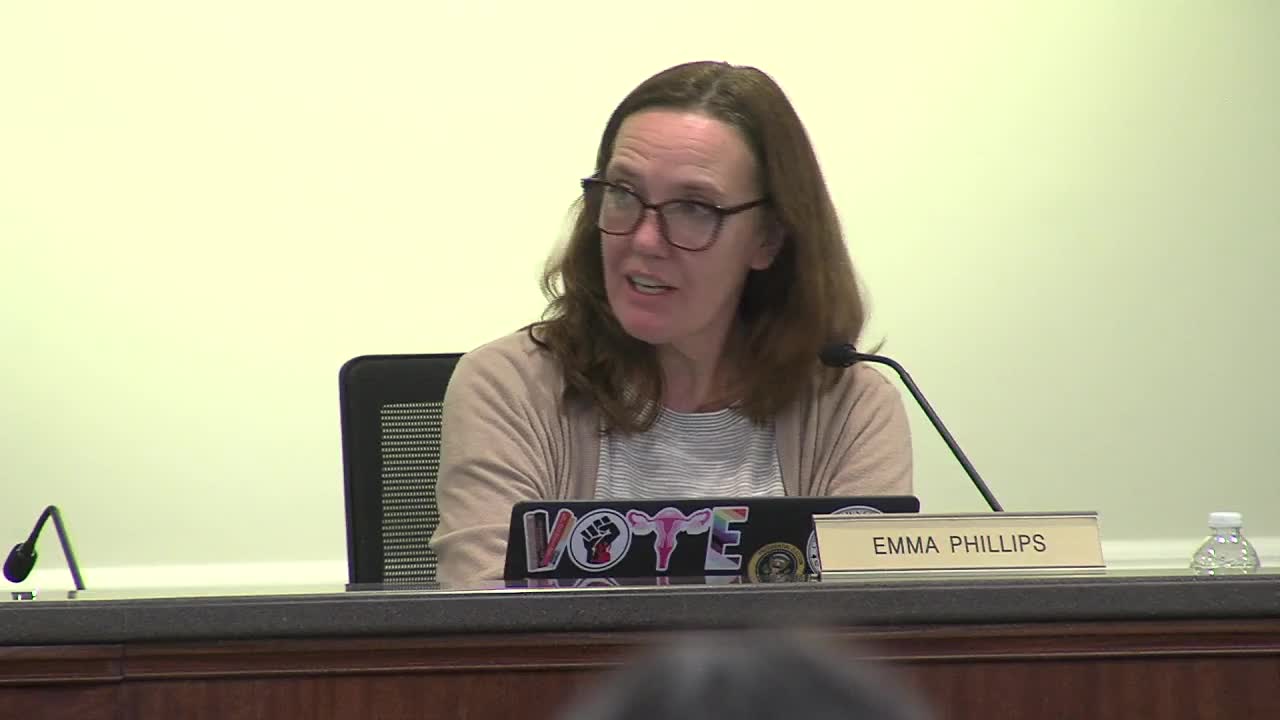Harrisonburg school board approves 2026 legislative program, stressing cooperation with residential health facilities and concerns about rapid accountability
Get AI-powered insights, summaries, and transcripts
Subscribe
Summary
The board approved a legislative pamphlet and formal program to carry to Richmond that highlights cooperation with residential health facilities, asks for more lead time on accountability changes and cut scores, and lists priorities and policy positions the district will champion.
On Thursday, Nov. 6, the Harrisonburg City School Board voted to approve its 2026 legislative program and pamphlet for use in Richmond advocacy. The packet, prepared with help from a James Madison University intern, lists priorities the board will actively pursue and policy positions the division will endorse.
Board members said the program matters because it gives Harrisonburg a compact, accessible document to share with legislators when the delegation meets in Richmond. “If you’re looking at this online, I can start by explaining the difference between a priority action item and policy position,” said Madison Desarno, a senior at George Mason University who helped draft the pamphlet and described the committee’s work during the meeting. The board praised the pamphlet’s layout and a back-page summary that includes division demographics and a QR code to the district website.
The legislative packet highlights two priorities discussed at length during the meeting: establishing clearer cooperation with residential health facilities, and urging more predictable timelines and funding around changes to Standards of Learning (SOL) accountability and cut scores. Board members described the cooperation-with-residential-facilities item as long-running and repeatedly delayed; they said local senators and delegates have been helpful in advancing the idea, but that the House of Delegates previously halted action.
Board members also emphasized concern about what they called “unfunded mandates” from Richmond — directives to local divisions without commensurate funding — and said the district will press for support from the governor-elect and the General Assembly on funding priorities, including JLARC-related items the board identified as important for increased school funding.
The board moved and approved the legislative program later in the meeting; members said they will carry printed copies to Richmond and use the pamphlet as a talking document when meeting with legislators.
The decision to adopt the legislative program was procedural: the board took a motion, heard a second, and approved the packet. Madison Desarno remained available if additional questions arose before the formal approval vote.
What the board will advocate for in Richmond includes cooperation with residential health facilities, more lead time and funding for accountability changes, and a set of action items and policy positions the packet lists as either actively pursued priorities or supportive positions.
Provenance: The legislative program was introduced at 00:06:39 (transcript start ~399.87) and approved in the vote recorded at 01:02:47 (transcript start ~3887.43).
